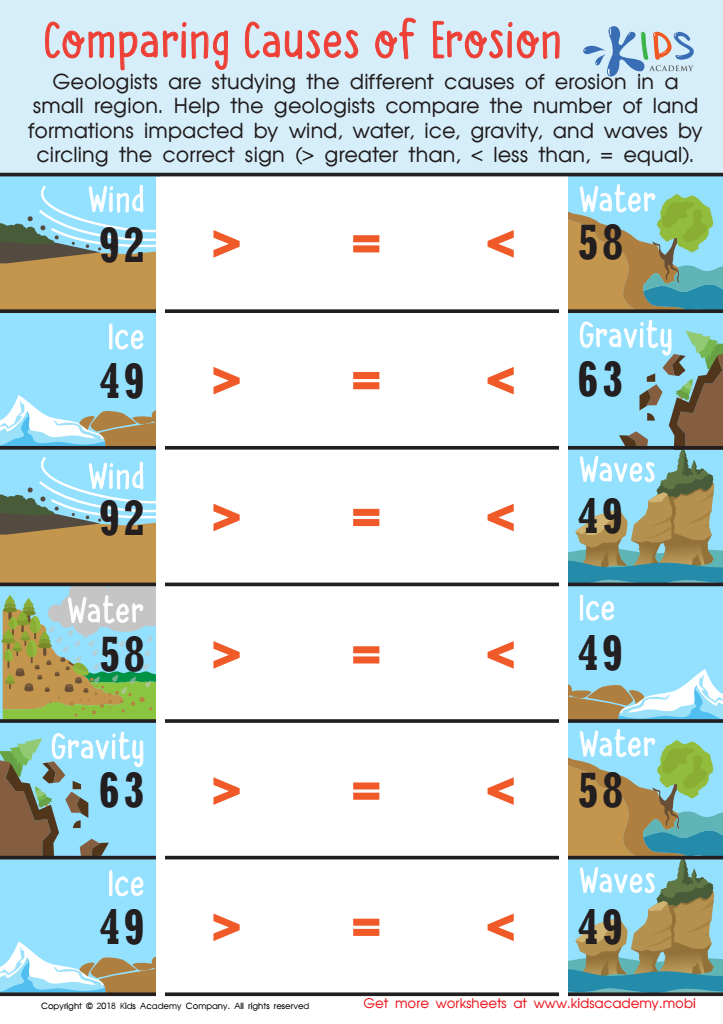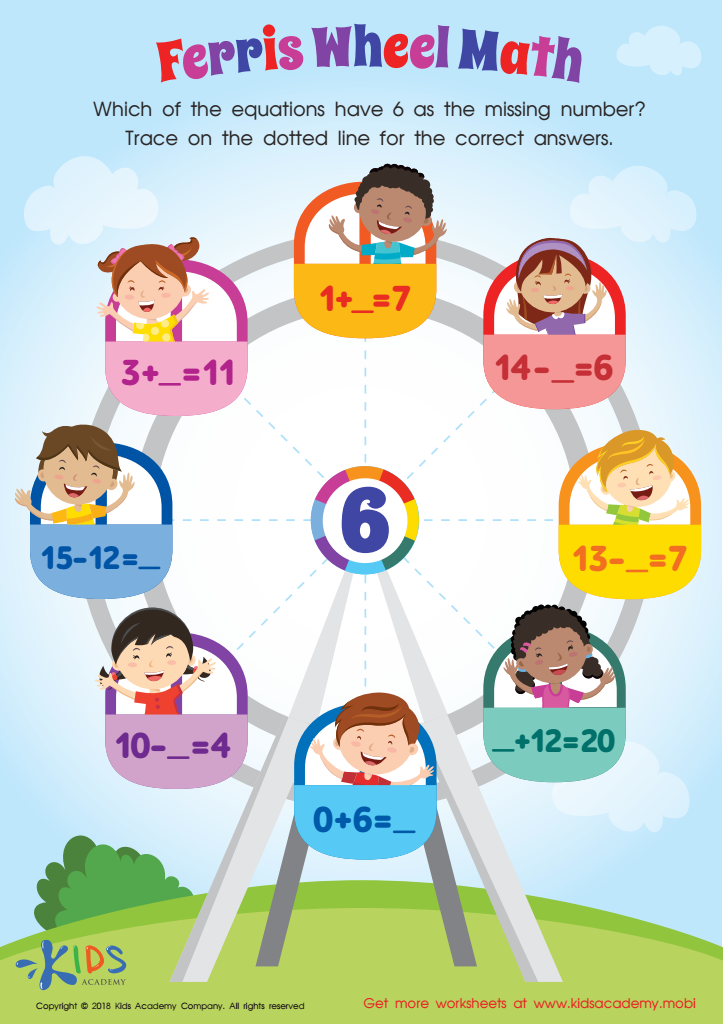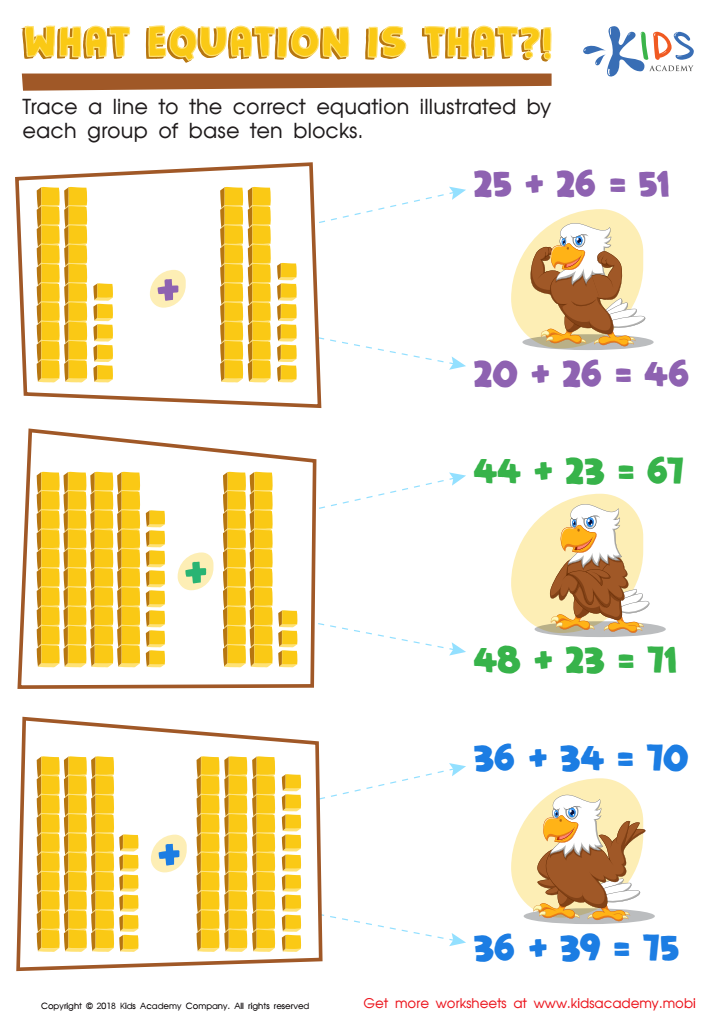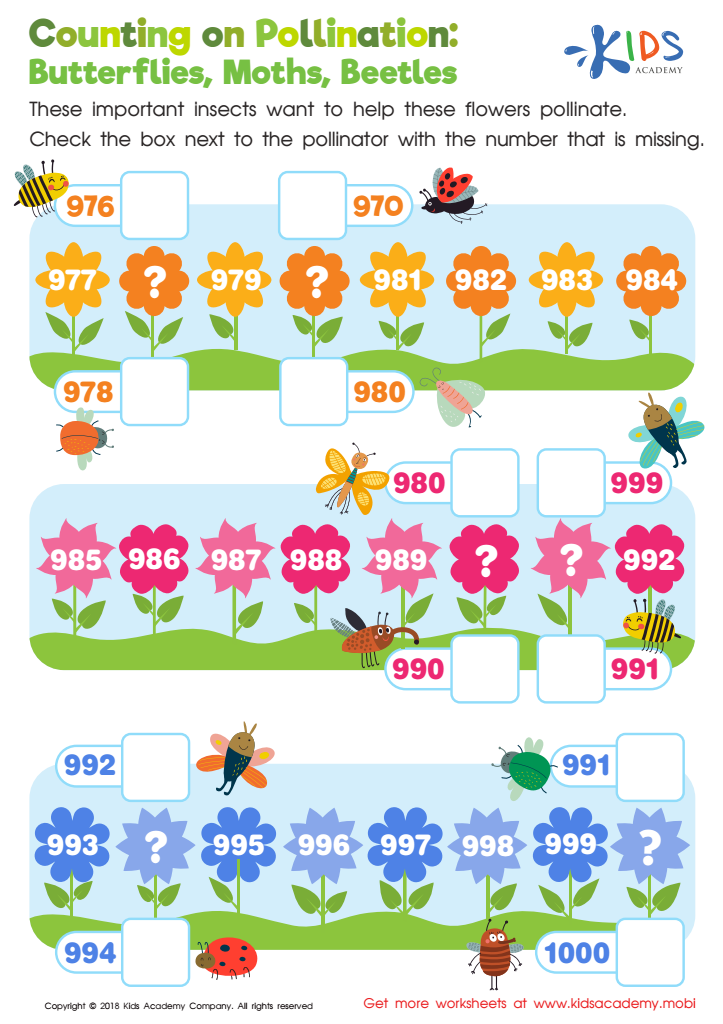Enhancing critical thinking Numbers Worksheets for Ages 5-7
4 filtered results
-
From - To
Enhance your child’s critical thinking skills with our engaging Numbers Worksheets designed for ages 5-7! These thoughtfully crafted activities encourage curiosity and problem-solving, allowing young learners to explore numerical concepts in a fun and interactive way. With a focus on real-world applications, our worksheets challenge students to make connections, analyze information, and develop reasoning skills essential for their educational journey. Perfect for home or classroom use, these worksheets support developmental milestones in a creative manner. Let your child thrive in math while boosting their critical thinking capabilities and fostering a love for learning. Download our worksheets today and watch them excel!


Comparing Causes of Erosion Worksheet


Missing Number: Ferris Wheel Math Worksheet


What Equation Is That? Worksheet


Counting on Pollination: Butterflies, Moths, Beetles Worksheet
Enhancing critical thinking in children aged 5 to 7 is vital for their cognitive development and lifelong success. During these formative years, children are increasingly capable of processing information, analyzing situations, and making decisions. By focusing on critical thinking, parents and teachers can equip them with essential skills necessary for navigating complex environments both in school and in daily life.
Harnessing critical thinking involves encouraging questioning, problem-solving, and logical reasoning. For instance, simple activities—like analyzing patterns in numbers, discussing possible outcomes of a story, or exploring different ways to solve puzzles—are powerful tools for developing these skills.
Furthermore, nurturing such abilities fosters independence and resilience. Children learn to evaluate information, consider different perspectives, and arrive at conclusions on their own. This self-sufficiency is crucial as they face challenges both academically and socially throughout their lives.
A strong foundation in critical thinking promotes engagement and boosts motivation, encouraging children to become active learners rather than passive recipients of information. Ultimately, enhancing critical thinking skills not only supports academic achievement but also prepares young children to approach future tasks and responsibilities with confidence and creativity.
 Assign to My Students
Assign to My Students




















